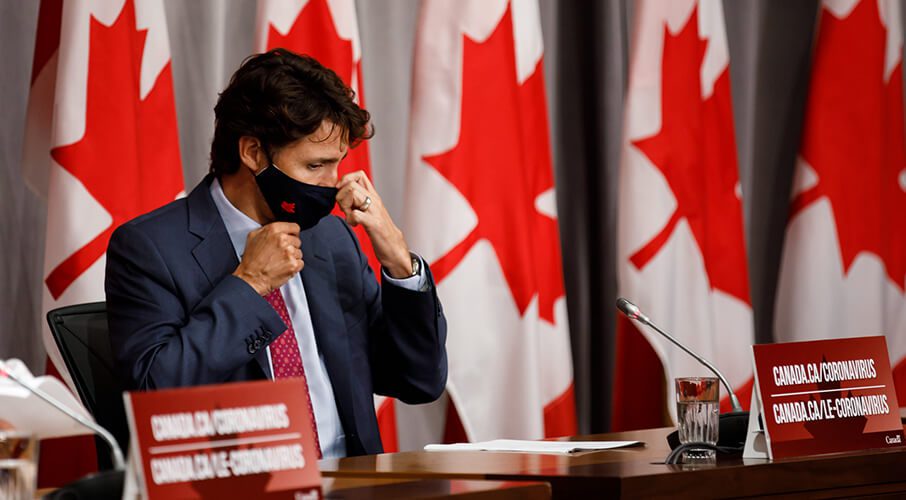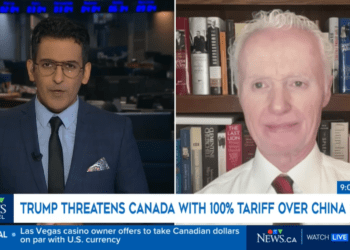
A successful Canadian energy sector, operating on some of the highest environmental and social standards in the world and with strong Indigenous participation, is part of Canada’s best and most practical solution to its economic needs, environmental commitments and promises to promote Indigenous economic development, write Ken Coates and Stephen Buffalo.
By Ken Coates and Stephen Buffalo, September 14, 2020
Canada’s new minister of finance, Chrystia Freeland, has mused about the need to reinforce the green economy. The suggestion has some Canadians energized and excited; others are nervous and concerned. Count Indigenous Peoples in both categories.
Indigenous people understand and support taking steps to reduce the country’s carbon footprint. At the same time, many Indigenous communities have worked exceedingly hard to carve out an appropriate place in one of Canada’s most important economic sectors.
Since its election in 2015, the Trudeau government cancelled the Northern Gateway Pipeline, banned oil and gas exploration in the Arctic and oil tankers off the British Columbia coast, brought in complex environmental assessment processes, and appeared to actively discourage investment in the industry. Under great political pressure, the government also purchased the Trans Mountain Pipeline, supported the Coastal Gaslink Pipeline and allowed the Keystone XL Pipeline to proceed.
The Trudeau government is also committed to improving the economic and social well-being of First Nations people, albeit with an impulse toward government intervention. The Indigenous commercial transformation is closely associated with the natural resource economy, particularly mining, oil and gas. Government policy is putting at risk the impressive gains supported by government policy in recent decades.
The simple truth is this: If the promotion of the so-called “green economy” does not leave a prominent place for a prosperous oil and gas sector, federal policy could undo one of the most important examples of Indigenous engagement. The promises of governments past will turn hollow and meaningless if the oil and gas industry is not supported, leaving Indigenous communities to cope with the fallout from broken commitments.
Indigenous communities support the move to a renewable energy economy and understand that there will always be a global demand for carbon-based energy products. Many First Nations have made major investments in solar power, “run of the river” hydroelectric projects, wind power and geothermal energy. Indigenous people understand that the future lies in multiple energy sources and a gradual, well-managed shift toward renewables.
The world will require oil and natural gas for decades. First Nations have considered all environmental aspects, both local and global, in making their decisions to invest in the sector and to support energy and related infrastructure development. Like other professionals in the field, many leaders are not convinced of the reliability, efficiency and actual carbon footprints of non-renewable systems.
If Indigenous communities engage in the new energy economy, issues of investment funding come quickly to the forefront. The plan for many Indigenous communities has been clear: take the revenues from the oil and gas sector, purchase infrastructure and set up businesses, make commitments to new economy initiatives, and build sustainable economic viability.
Without steady and dependable revenue from oil and gas, it is difficult to imagine how Indigenous governments would fund a transition to renewable energy. Further reliance on government subsidies, which reinforce the paternalism of the past, would only add to government debt at a time when federal spending has surged.
Indigenous communities engaged with the oil and gas industry for solid reasons: to build prosperity, employment and business, to gain autonomy from the government of Canada, to secure a measure of influence over project decision-making, and to assert a prominent place in the national and international economy. Progress has been dramatic, and First Nations were on track for even more impressive improvements.
It is important to talk of a Canadian green economy, even if there are questions about how it will occur. The oil and gas sector and renewable energy production must co-exist and will, undoubtedly, be key parts of the investment portfolio of many Indigenous communities. A successful Canadian energy sector, operating on some of the highest environmental and social standards in the world and with strong Indigenous participation, is part of Canada’s best and most practical solution to its economic needs, environmental commitments and promises to promote Indigenous economic development.
Stephen Buffalo is president of the Indian Resource Council; Ken Coates is a senior fellow at the Macdonald-Laurier Institute.




